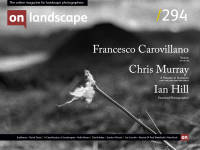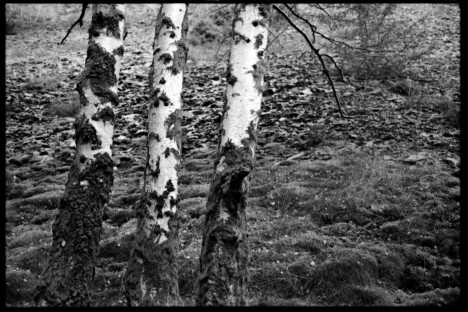Featured Photographer

Ian Hill
Ian is a photographer, writer and environmentalist. He lives and works in West Cumbria. His work can be found at his website and on Twitter at @printedland

Michéla Griffith
In 2012 I paused by my local river and everything changed. I’ve moved away from what many expect photographs to be: my images deconstruct the literal and reimagine the subjective, reflecting the curiosity that water has inspired in my practice. Water has been my conduit: it has sharpened my vision, given me permission to experiment and continues to introduce me to new ways of seeing.
Ian Hill writes on his website that he is compelled by the imagery of words as much as pictures. Photography is a process of enquiry; he observes, listens, and tries to understand the land. Although he lives in a well-known area, his black and white images abstract place and question our connection and response to it.
Would you like to start by telling readers a little about yourself – where you grew up, what your early interests were, and what you went on to do?
I grew up in the flatlands of South Lincolnshire – a little ironic, given that I have lived amongst mountains for most of my adult life. I left there when I was 17 to study Geology and Environmental Science and went on to work in environmental education. Most recently I have had a career in developing low-carbon projects; I currently work at a University in Scotland, helping academics to do interesting things with environmental research. I live, however, in Cumbria, on the edge of the Lake District.
How did you become interested in photography, and what were your early images of or about?
Oddly, I don’t remember why I became so interested in photography. I think photography adopted me rather than the other way around.
In my late teens, I devoured culture; I was an avid reader, and I started to visit the art gallery in nearby Lincoln. I think I was desperate to understand a world that was more varied and interesting than the rural area in which I lived.
At around this time, I picked up an old camera which was lying around my parent’s home, and started to take and develop B&W photographs; the local landscape, the odd flatness of the land; the way snow lay in furrowed fields in winter. I have no idea how I learnt these skills; I guess I borrowed a book from the local library and simply experimented. I developed films in the airing cupboard at home. I had access to one of those old ‘Gnome’ enlargers at my school – you know the sort, they look like a 1960s hairdryer and emit the fading glow of a dying lightbulb. I loved it. I was hooked, irrevocably.
Very early, I realised that black & white was my medium – I had been brought up on monochrome photos in the family cupboard, and this was an era (the end of the ‘70s or beginning of the ‘80s) when newspaper photographs were still in B&W. The ability to capture texture and tone somehow captivated me, and I began to notice the work of photographers which was in B&W.


